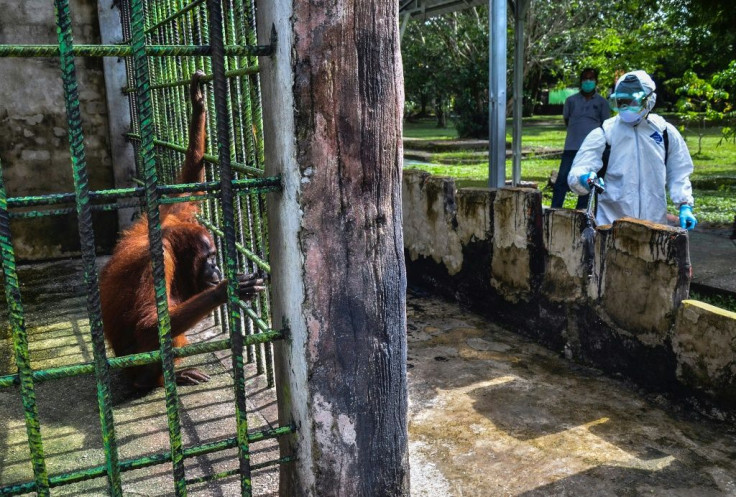Fearless Prey: Human Contact Reduces Animals' Fear Of Predators
KEY POINTS
- Humans have been changing the environment that animals are moving in
- A study found that contact with humans have decreased animals' anti-predator behaviors
- This may be problematic for animals that are planned to be reintroduced to the wild
Animals have their own ways of avoiding becoming a predator's dinner. In a new study, a team of researchers found that contact with humans has actually caused a decrease in these anti-predator behaviors.
Humans have been greatly changing the environment in the last few centuries. From pollution and tourism to urbanization and habitat loss, humans have essentially changed the environment that the animals are moving in while also increasing contact with them.
For a new study published in PLOS Biology, a team of researchers reviewed the findings of 173 peer-reviewed studies on animals' predator-avoidance behavior involving 102 species that were exposed to three types of human influence: domestication, captivity, and urbanization. The idea is to see how contact with humans has changed the animals' anti-predator responses.
Based on their analysis, all three types of human influence resulted in a two-step change in the animals' anti-predator characteristics, with the initial human contact causing an increase but then gradually decreasing in the following generations.
Of the three types of human contact, domestication yielded the fastest decrease in anti-predator behaviors, with the traits reaching their lowest value just after 30 years. By comparison, urbanization and captivity led to slower changes, with anti-predator traits in response to urbanization reaching the lowest value after about 90 generations.
"(O)ur results reveal that the loss of anti-predator traits due to urbanization is similar to that of domestication but occurs 3 times more slowly," the researchers wrote.
In other words, urbanized animals, or those that have less drastic contact with humans, also experience the same change as the animals that were more directly influenced by humans but just at a slower rate.
In addition, the results also revealed that herbivores and solitary species changed more quickly than the carnivores, omnivores, and group-living animals.

"While it is well known that the fact of being protected by humans decreases anti-predator capacities in animals, we did not know how fast this occurs and to what extent this is comparable between contexts!" study lead Dr. Benjamin Geffroy of the Institute of Marine Biodiversity, Exploitation and Conservation said in a PLOS news release. "We believe they should be systematically investigated to draw a global pattern of what is happening at the individual level."
As the PLOS news release explains, the researchers surmise that the change happens because, with humans, there is less pressure for the animals to escape from predators. And in the case of domestication, humans cause an "artificial selection" because of the preference for more docile animals.
Although it seems as though the animals can be more protected among humans, the behavior change is actually rather problematic because it also changed how the animals react to actual predators. This may be particularly problematic for the captive animals that have become used to a predator-free environment.
Because of this, the researchers note the importance of considering this behavior change when there are plans to reintroduce creatures to their natural environment.
"Because these changes can happen quickly and are likely to influence many traits, animals may have to be retaught to display antipredator behaviors or be exposed to predators prior to release to prevent the extreme predator-induced mortality often seen following the release of captive-reared animals," the researchers wrote. "This loss of anti-predator traits might have consequences for animal survival in an increasingly human-dominated world."

© Copyright IBTimes 2025. All rights reserved.






















